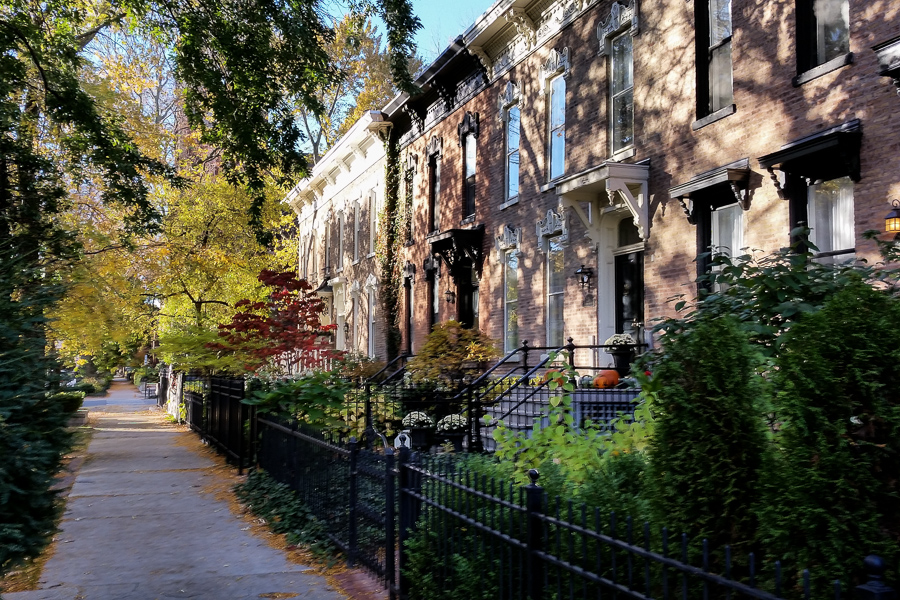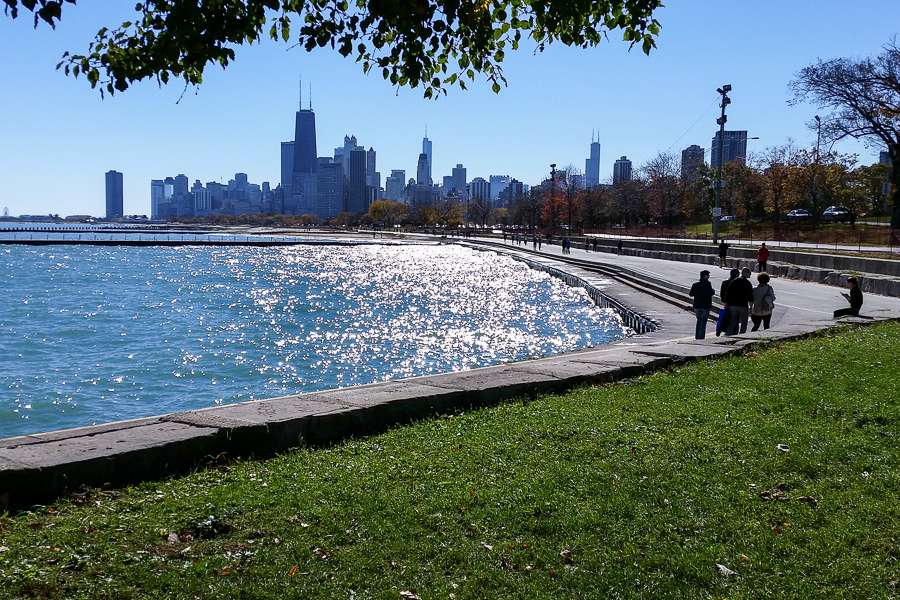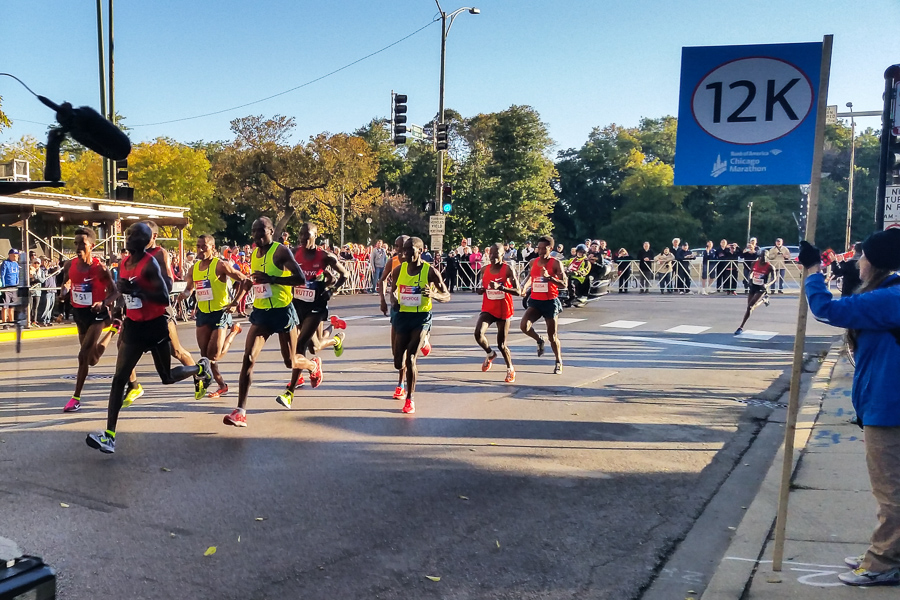I like traveling to Europe because it reminds me that technology can combine with public services in ways we will not see in the U.S. for 30 years. Yesterday it was a magic button that made a taxi appear in seconds. Today it was a bit of wasted time that led to two discoveries, one of which was that I wasted time.
My business colleague and I, used to very long lines to get paper train tickets as well as some predictions about our cognitive abilities at 5:15 tomorrow morning, decided to swing by the local train station to get our airport express tickets. It turns out, they don't use them. You simply swipe your credit card at a small kiosk and—bam—you have a ticket good for six months.
In other words, we could have simply walked to the train station tomorrow morning, swiped our cards, and climbed aboard, without waiting in line and without getting a paper ticket.
My colleague, having noticed that coming in from the airport no one challenged us for our tickets, asked, "how does that even work?"
I thought about it and realized that in Norway, very few people steal public services. Also the conductors have handheld computers that can read credit cards and match them with pre-payments.
Imagine if Metra did that. It might be convenient. Or if Metra and the CTA could get their asses moving on making Ventra cards good for both. It might wind up being something like the Clipper Card in San Francisco, a transit card that works on most public transport.
The basic point is, how much lost productivity do we have in the U.S. because we under-fund public services to the point where they can't invest in cost-saving technology? And what will it take to get Americans to stop voting for people like Bruce Rauner, who is guaranteed to try starving Chicago-area public transport for four more years?
I don't know why, exactly, but Dutch daredevil Nik Wallenda walked from Marina City to the Leo Burnett building last night the hard way:
Wallenda, 35, began by walking more than two city blocks from the Marina City west tower to the Leo Burnett Building. That first crossing — which took 6:51 minutes and was done at a 19-degree slant across the Chicago River — set the world record for steepest incline for tightrope walking between two buildings.
Wallenda took a Leo Burnett elevator down to the street and returned to the Marina City west tower, where he wore a blindfold as he crossed to the east tower in 1:17 minutes. The feat was completed at more than 500 feet, making it the highest blindfolded walk recorded.
I mean, hey, why not, right?
The Apollo Chorus of Chicago will perform at 3:30 this afternoon at St. John Cantius Church in Chicago, right by the Chicago/Milwaukee Blue Line stop.
We'll perform two movements from Schubert's Mass in A-flat, five choruses from Händel's Messiah, and a few other pieces (including a beautiful soprano duet by Monteverdi).
The church is gorgeous. I mean, gorgeous. Even if you don't hear us perform you should at least poke around the space.
Oh, did I mention the concert is free? You should still subscribe, so you can hear us perform the entire Messiah in December and the entire Schubert in March.
Following a friend's example, I got a FitBit this week. The same friend has challenged me for the weekend, getting 15,300 steps to my 14,000 yesterday, and going hiking this afternoon. Ah, but I have a dog, you see. And the weather is perfect. So far today I've walked 15,400 steps (11.6 km), almost all of it with Parker, and we're about to go out for another walk.
Here's walk #1, this morning, in Lincoln Park:

And walk #2, at lunchtime, down the Lakefront Path:

I got my 15,000-step badge on Friday, my first full day with the thing. Today I'm aiming for 20,000. My friend is too. This will be close, I'm guessing...
The total lunar eclipse two weeks ago required getting up early in the morning and trying to find the moon through trees and Chicago street lights. Late this afternoon, Chicago (and most of North America to the west) will get a much better show from the moon as it partially obscures the sun.
Starting around 16:35 CDT this afternoon, the moon will creep in front of the sun, reaching maximum eclipse right at sunset (17:59 CDT).
Of course, this being Chicago, and despite the crystal-clear blue skies above the city right now, the forecast for this afternoon calls for increasing clouds and showers. Because we won't actually see the eclipse, that just means it will get dark and gloomy an hour before sunset.
And look at that sunset time. That's right, last night was the first sunset since March 8th to occur before 6pm.
Ah, well. If you live west of Chicago, you'll get a good show from the moon this afternoon, with less gloom and more astronomical coolness. Enjoy.
After getting pounded by Uber and Lyft, Hailo has pulled out of its North American markets:
Tom Barr, co-chief executive and president, said Hailo would concentrate on markets in Europe and Asia and enhanced products such as payment technology and a "concierge" service.
"In the next phase of our growth, we have decided to put all of our energy and resources into these areas," Barr said in a statement to AFP on Wednesday.
"We have therefore decided to end our operations in North America, where the astronomical marketing spend required to compete is making profitability for any one player almost impossible."
On the ground, it appeared that Hailo simply wasn't very helpful. The few times I've used it in Chicago, I've had long waits as 3, 4, or more drivers refused (or ignored) the hail and about the same number of empty cabs went by after someone accepted.
In a note to subscribers, Hailo said its last day of operations in Chicago will be Saturday.
I have now downloaded Uber to my phone...
Via the Illinois State Climatologist, NOAA has put out a two-page brochure outlining the El Niño forecast for this coming winter, and its benefits to the Chicago area:
While no two El Niño events are alike, the typical winter weather pattern brings the polar jet stream farther north than usual, across Canada, while the Pacific jet stream remains in the southern U.S. As a result, the upper Midwest to Great Lakes area can be warmer than normal, with drier-than-normal conditions across the Great Lakes toward the Ohio River Valley, and with less snow than usual in the upper Midwest Confidence in these patterns is higher with stronger El Niño events.
Odds still favor an El Niño forming by mid to late fall, with a 60-70% chance of development. There is a 30-40% chance for neutral conditions to continue through this winter, with a near-zero chance for La Niña to develop.
After last year's brutal winter, the worst we've had in 35 years, the phrase "warmer and drier than normal" sounds great. I vote Yes.
It wasn't the fastest race ever, but at 2:04:11, it was pretty fast:
Eliud Kipchoge didn’t hesitate to press his advantage over Kenenisa Bekele in the news conference before Sunday’s Bank of America Chicago Marathon.
“I have more experience,” Kipchoge said.
And Kipchoge used it to drop first Bekele and then everyone else, as he won the race in 2 hours, 4 minutes, 11 seconds.
Kipchoge, who collected $155,000 for the win and a time bonus, led a Kenyan sweep of the podium. Sammy Kitwara was second in 2:04:28, with Dickson Chumba third in 2:04:32.
But for real speed, the wheelchairs can fly:
Illinois' Tatyana McFadden won the women's wheelchair race in 1:44.50. Joshua George, also of Illinois, won the men's wheelchair race in 1:32.12.
Parker and I just walked over to the course (it's a block away), and already it's like the event never happened. The logistics involved in this race are phenomenal.
Parker and I raced the elite men in the marathon this morning. Even with a 10 km head start, we still only got to Addison and Lake Shore at the 35-minute mark before they caught up:

The weather couldn't be better for a marathon. At race time it was 11°C and clear with a south breeze to push the runners along.
The fastest men in the world should cross the finish in about 45 minutes.
It's sunny and cool, and I have no remaining responsibilities that I know of for the afternoon. So Parker and I are going for a long walk.
Oh, and: Go Giants.